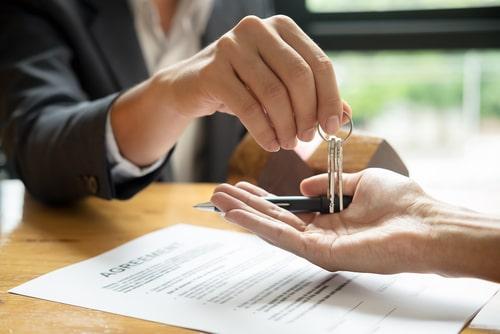1512 Artaius Parkway, Suite 300,
Libertyville, IL 60048
Call for a FREE Phone Consultation
847-549-0000
Video Consultations Also Available
 Spanish
Spanish Cantonese
CantoneseServing Clients Across 7 Illinois Locations
What Happens at a Residential Real Estate Closing?
 Buying a new home is an exciting opportunity, but the process can be time-consuming and stressful at times. By the time you have found the right home, secured the necessary financing, and reached an agreement regarding the terms of the deal, you will certainly be ready to move in and relax for a while. Before you can do, however, there is one final step: the closing. If you have never bought a new home before, you should be aware of what goes on at closing and what you will be expected to do.
Buying a new home is an exciting opportunity, but the process can be time-consuming and stressful at times. By the time you have found the right home, secured the necessary financing, and reached an agreement regarding the terms of the deal, you will certainly be ready to move in and relax for a while. Before you can do, however, there is one final step: the closing. If you have never bought a new home before, you should be aware of what goes on at closing and what you will be expected to do.
Your Role at Closing
Before you can get the keys to your new home, you will generally be required to attend and participate in a mortgage closing. Most often, a closing is a scheduled appointment at the office of an attorney, the title company, or your mortgage lender. You should bring any documents that you received or signed in the weeks leading up to closing, along with two forms of identification. You will also need an acceptable form of payment—usually a cashier’s check—if your required payment has not already been wired in advance.
Once the closing gets underway, you will:
- Review all of the mortgage documents and sign them. You should not sign anything that you do not understand. If the paperwork does not reflect what you agreed to or expected, resolve the matter before signing.
- Provide proof of homeowners insurance and documentation of inspections, if required.
- Provide a cashier’s check or certified check for your down payment, taxes, insurance, closing costs, and prepaid interest, in accordance with the terms of your agreement.
After you have done your part, a representative from your lender will distribute funds to the seller to complete the transaction. Once everything is signed, and the appropriate funds have changed hands, you will receive the keys to your new home.
Who Else Will Be There?
There could be several parties who have an interest in your closing, but the specific number will depend on factors such as the location of the property, the type of property, and the nature of the sale. For example, if you are paying cash for a condominium in a gated community, there might be different people present at closing than if you are taking out a mortgage loan to buy a single-family home in the suburbs.
At an average closing, you can expect to see:
- Your lawyer
- A representative from your mortgage company
- Your real estate agent or broker
- The closing agent, generally a representative from the title company
- The seller
- The seller’s lawyer
- The seller’s real estate agent or broker
- A notary public to witness the signing of documents
In most cases, preparing for closing takes a few weeks, but the closing itself will usually be completed in a couple of hours. You should be sure to keep all of your paperwork from the closing in a safe place, just in case you ever need to reference it in the future.
Call a Lake County Closing Attorney
If you are looking to buy a new home, an experienced Libertyville real estate lawyer can help you navigate the process. We will also represent your interests at closing. Call 847-549-0000 for a free phone consultation at Newland & Newland, L.L.P. to get started today.
Sources:
http://www.homebuyinginstitute.com/closing.php
https://bettermoneyhabits.bankofamerica.com/en/home-ownership/what-happens-at-closing
 Stop Foreclosure
Stop Foreclosure




















